Imagine immersing yourself in a country where vibrant traditions and spiritual practices come alive through spectacular festivals. Benin, the birthplace of Voodoo, offers a unique cultural experience that will leave you fascinated.
As a hub of cultural richness in West Africa, Benin’s festivals are a testament to its deep-rooted heritage. From the world-famous Voodoo Festival to lesser-known celebrations, the country’s diverse festival landscape is a treasure trove of experiences waiting to be explored.
By experiencing these festivals, you’ll gain insight into the country’s unique cultural heritage and witness traditions that have been passed down through generations. Whether you’re interested in culture, traditions, or simply exploring new attractions, Benin’s festivals are a must-see.
The Cultural Significance of Festivals in Benin
Festivals play a crucial role in Benin’s cultural landscape, reflecting the nation’s history and traditions. They serve as a bridge between the past and the present, allowing the Beninese people to honor their ancestors while embracing modernity.
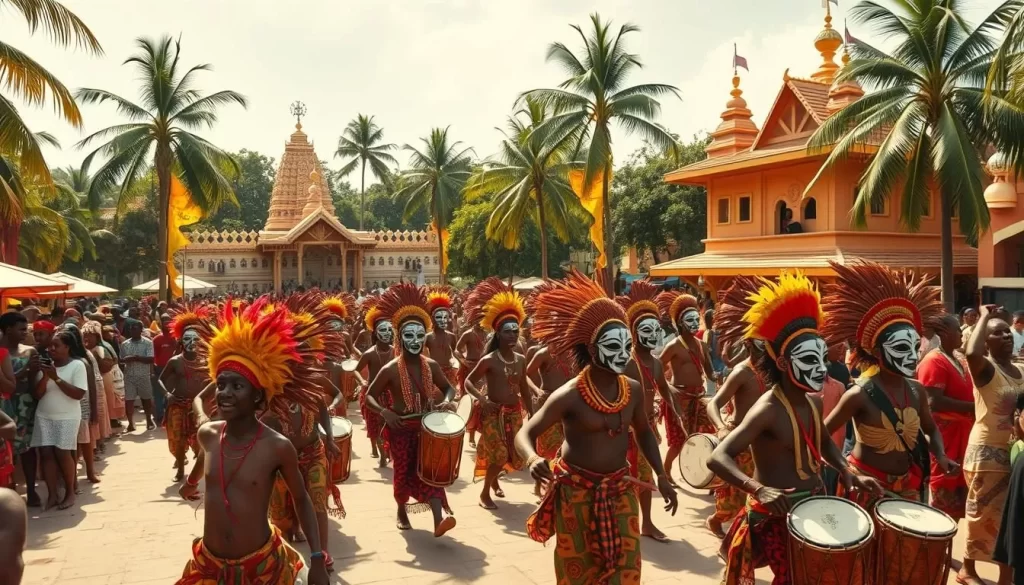
Benin’s festivals are a testament to the country’s rich cultural diversity. Today, these celebrations continue to thrive, adapting to the changing times while maintaining their core spiritual and cultural significance. The festivals provide a unique way for the Beninese to connect with their heritage.
The Role of Vodun in Beninese Celebrations
Vodun, or Voodoo, is an integral part of Beninese culture and is often celebrated during festivals. The practice of Vodun is deeply rooted in the country’s history and is believed to play a significant role in the spiritual lives of the Beninese. During festivals, Vodun ceremonies are performed, honoring the gods and ancestors.
How Festivals Connect Past and Present in Benin
Benin’s festivals are a dynamic blend of traditional and modern elements. They honor the past while embracing the present, creating a vibrant cultural expression that is relevant today. By participating in these festivals, visitors can gain a deeper understanding of Benin’s cultural traditions and their significance in contemporary society.
Voodoo Festival: Benin’s Most Famous Celebration
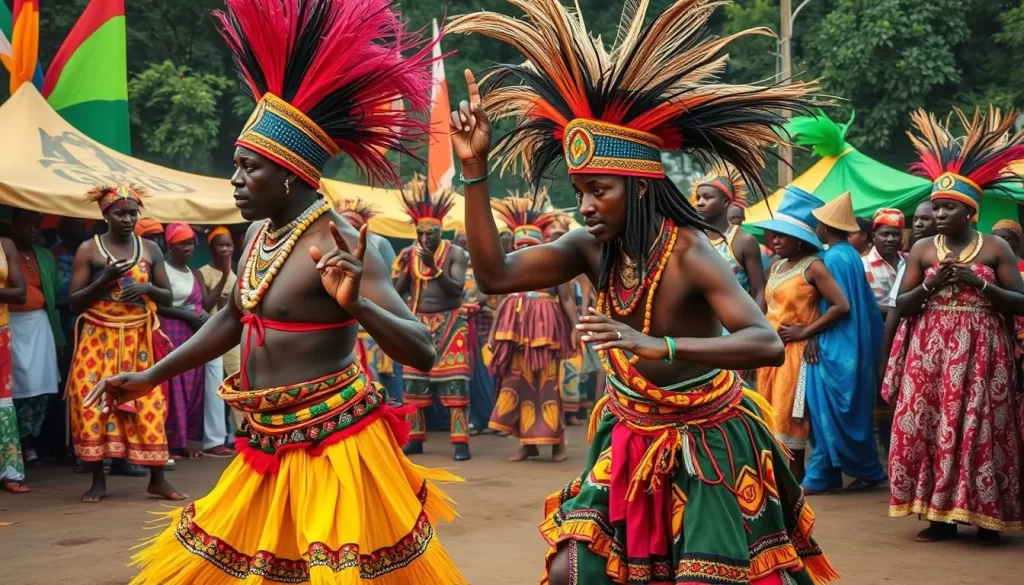
If you’re looking for an immersive cultural experience, Benin’s Voodoo Festival is an event you won’t want to miss. Held annually, this festival is a vibrant celebration of the country’s rich cultural heritage, particularly its Vodun traditions.
What to Expect at the Voodoo Festival
The Voodoo Festival is a spectacle that combines traditional dances, music, and rituals. As you participate in or observe this celebration, you’ll witness the deep connection between the local people and their beliefs. To make the most of your experience, consider joining a specialized tour that focuses on the festival. These tours often provide better access to ceremonies and expert interpretation, enhancing your understanding of the events.
You’ll see various rituals and ceremonies performed by local priests and priestesses, and the atmosphere is usually filled with excitement and reverence. The festival is an opportunity to learn about the significance of Vodun in Beninese culture and its influence on daily life.
When and Where to Experience the Voodoo Festival
The Voodoo Festival typically takes place in January in the city of Ouidah, a historical center for Vodun practices. To fully immerse yourself in the festival, plan your visit to coincide with the celebrations. Hiring a knowledgeable local guide can greatly enhance your experience, as they can explain the significance of the ceremonies and help you navigate the festival grounds.
Tips for Attending the Voodoo Festival
When attending the Voodoo Festival, it’s essential to be respectful of the local culture and traditions. Dress modestly and follow any instructions given by your guide or local authorities. Be mindful of your photography; some rituals may be sensitive or restricted. Interacting respectfully with the local people and other attendees will enrich your experience.
To make the most of your visit, consider the timing of your arrival and choose a good viewing spot. Joining a tour can help you gain access to exclusive areas and provide valuable insights into the festival’s significance.
Gani Festival: A Celebration of Traditional Music and Culture
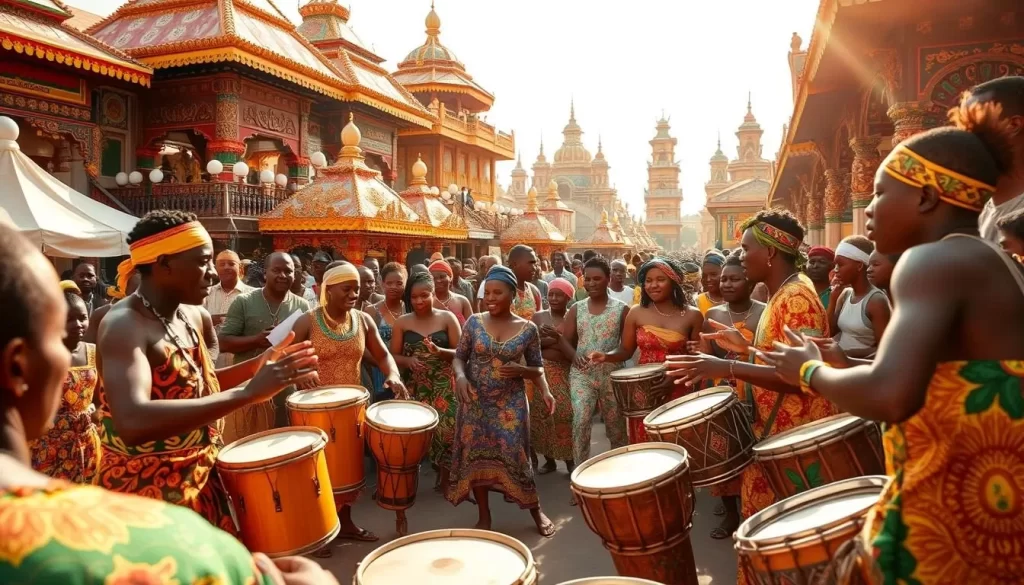
Benin’s Gani Festival is a spectacular event that combines traditional music, dance, and cultural parades, making it a must-experience for any visitor. This vibrant celebration is a testament to Benin’s rich cultural heritage and its people’s strong connection to their traditions.
Cultural Parades and Performances
The Gani Festival features elaborate cultural parades and performances that showcase the community’s rich cultural heritage. You’ll witness colorful processions, traditional dances, and theatrical performances that narrate historical stories and myths. These events are not only entertaining but also provide a window into Benin’s history and cultural values.
Traditional Music and Dance Highlights
Traditional music and dance are at the heart of the Gani Festival. The festival grounds come alive with the rhythms of traditional drums and the vibrant costumes of the performers. You’ll have the opportunity to experience the unique musical styles and dance forms that are characteristic of Benin’s cultural identity.
Artisan Markets and Community Events
The Gani Festival also features vibrant artisan markets where local artisans sell handmade crafts, textiles, and artwork. It’s a great spot to snag unique souvenirs while supporting the local economy. Additionally, the festival includes community bonding events such as storytelling sessions, traditional games, and communal meals, which provide a deeper understanding of local customs and strengthen the sense of togetherness among attendees.
By participating in these community activities, you’ll gain more than just a spectator’s view; you’ll be engaging with the local culture in a meaningful way. The markets and community events create economic opportunities for local people while preserving traditional crafts and customs, making your visit a part of the community’s livelihood.
As you tour the festival grounds, you’ll explore the various markets and experience the warmth of Benin’s community, making your visit to the Gani Festival an unforgettable experience.
Egun and Egun Gun Festivals: Masked Celebrations
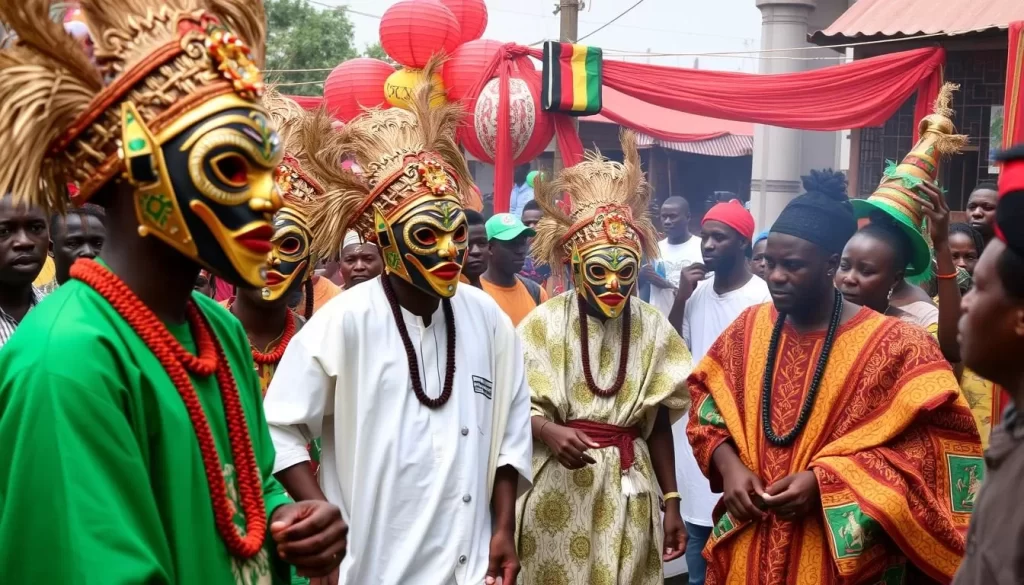
Immerse yourself in Benin’s cultural richness by attending the Egun and Egun Gun Festivals, where tradition and spirituality blend. These masked celebrations are a significant part of Beninese culture, offering a unique experience for visitors.
The Spiritual Significance of the Egun
The Egun and Egun Gun Festivals are deeply rooted in the spiritual beliefs of the Beninese people. The masked figures, known as Egun, are believed to represent ancestral spirits, embodying the connection between the living and the dead. The Zangbeto, covered in thousands of strands of raffia, perform energetic, swirling dances that are both mesmerizing and spiritually significant.
Witnessing the Colorful Masked Performances
When you attend the Egun and Egun Gun Festivals, you’ll be treated to vibrant masked performances. The different mask types and movement patterns hold significant cultural and spiritual meaning. To fully appreciate the symbolism and significance of what you’re seeing, consider joining a specialized tour with a knowledgeable guide. They can provide insights into the performances, enhancing your overall experience.
The best time to see these performances is during the peak festival days, when the energy is electric and the performances are at their most vibrant. Positioning yourself in a spot with a clear view will ensure you don’t miss the intricate details of the masks and the dynamic movements of the performers.
Ganvié Festival: Celebrations on Stilts
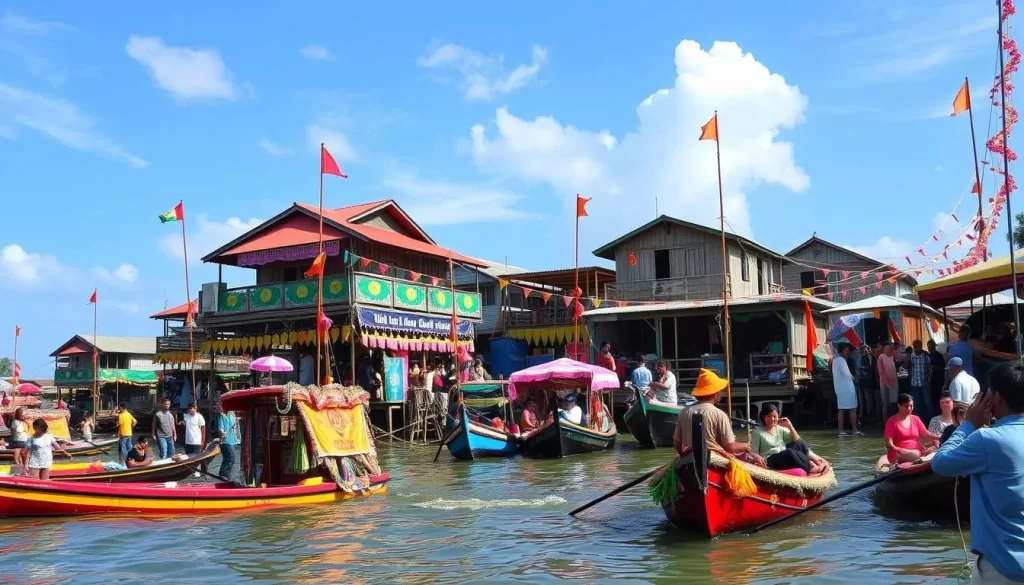
Every year, the stilted village of Ganvié transforms into a festive hub, celebrating the Tofinu people‘s escape from slavery and their ingenious way of life. This unusual setup was created around four centuries ago when the Tofinu fled from the Fon tribe of the Dahomey Kingdom, who were out to capture individuals to sell into slavery.
The Unique Setting of Lake Nokoue
The Ganvié Festival takes place in the remarkable setting of Lake Nokoue. The Tofinu people, knowing the Fon’s traditional taboos surrounding water, cleverly evaded capture by heading into the lake and setting up homes on stilts. This ingenious way of adapting to their environment has become a defining characteristic of their culture.
Traditional Celebrations in the Stilted Town
During the festival time, the normally quiet fishing village of Ganvié is transformed into a vibrant celebration venue. The Tofinu people celebrate their unique history and culture through water-based ceremonies and performances, including boat parades and floating music platforms. These distinctive festival traditions commemorate the community’s escape from slave raiders and demonstrate their resilience.
The Ganvié Festival is a testament to the Tofinu people’s ability to preserve their cultural heritage in a unique and challenging environment. By celebrating their history and traditions, the community strengthens its identity and showcases its rich cultural tapestry to visitors from around the world.
Other Notable Festivals to Check Out When Visiting Benin
Beyond the famous Voodoo Festival, Benin is home to a diverse array of cultural celebrations that offer a deeper understanding of its rich heritage. These events not only showcase the country’s vibrant traditions but also provide visitors with a unique cultural experience.
Gelede Festival: Honoring Feminine Power
The Gelede Festival is a significant cultural event that honors feminine power and creativity. This festival is a testament to the importance of women in Beninese society, celebrating their roles in maintaining social harmony and cultural continuity. During the Gelede Festival, you can expect to see elaborate masked performances, which are central to the celebration. These masks represent various female spirits and are used to convey messages about femininity, fertility, and community.
The festival also includes traditional dances, music, and feasting, creating a lively atmosphere that immerses visitors in the local culture. By attending the Gelede Festival, you’ll gain a deeper appreciation for the cultural significance of femininity in Benin and the ways in which it is revered and celebrated.
Goli Festival: A Week-Long Cultural Immersion
The Goli Festival, held annually in August, is a week-long celebration that takes place over 7 days, offering a profound cultural immersion experience. This festival is unique because it spans a longer period than many other celebrations, allowing for a more extensive exploration of the cultural traditions of the communities in the Togo-Benin border region.
- Experience different ceremonies and events each day, showcasing the rich cultural heritage of the region.
- Discover the various mask types used in the Goli tradition, each representing different spirits and appearing on specific days of the festival.
- Gain insights into how this August celebration offers a different perspective on the region’s culture compared to the more famous January festivals.
- Learn how including this festival in your trip itinerary allows you to experience the cultural connections between Togo-Benin through shared traditions that transcend modern borders.
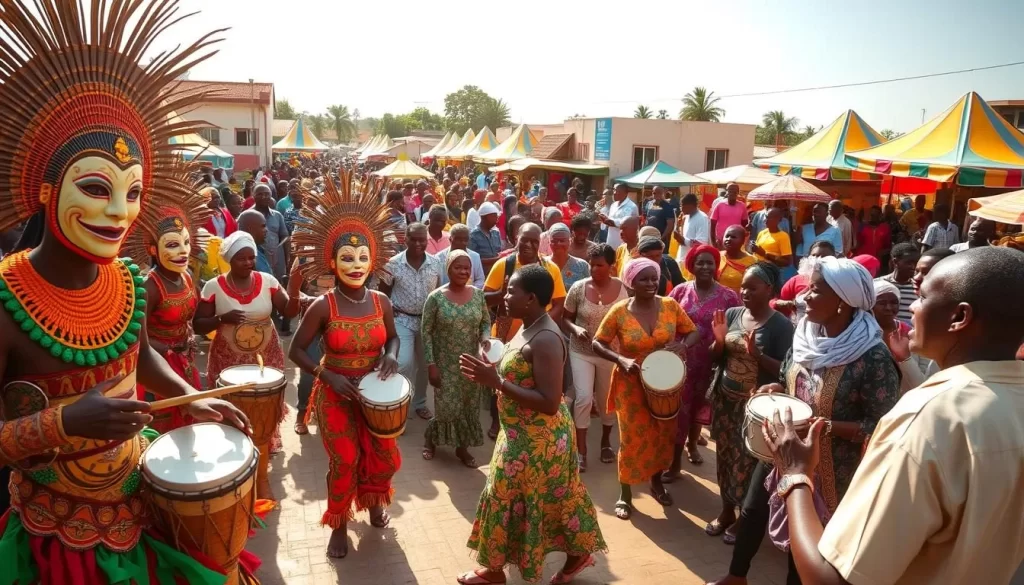
By attending the Goli Festival, you’ll have the opportunity to witness the vibrant cultural practices of the region, creating lasting memories of your visit to Benin. The extended duration of the festival allows for a more nuanced understanding of the local customs and traditions, making it a valuable addition to your cultural itinerary.
Practical Travel Tips for Festival Season in Benin
As you prepare for your trip to Benin, understanding the practical aspects of attending festivals is crucial. Benin’s festivals are a significant part of its cultural identity, and being prepared will enhance your experience.
Best Time to Visit for Festival Experiences
The best time to visit Benin for festival experiences varies throughout the year, as different festivals take place in different seasons. For instance, the Voodoo Festival typically occurs in January. Planning your trip around the festival you’re interested in will ensure you don’t miss out on the celebrations. Check the festival calendar before booking your travel.
Accommodation and Transportation During Festivals
During peak festival seasons, accommodation and transportation can become busy. It’s advisable to book your accommodations well in advance to avoid last-minute hassles. Similarly, arranging for transportation to and from festival locations ahead of time can save you from potential logistical issues. Consider hiring a knowledgeable local guide who can help navigate cultural expectations and festival protocols.
Cultural Etiquette for Festival Attendance
When attending festivals in Benin, especially those involving voodoo ceremonies or other religious events, it’s essential to be respectful of local customs. Dress modestly and be mindful of your behavior. Always ask for permission before taking photos of people or sacred rituals. Interacting respectfully with the local people will enrich your experience and foster a positive connection with the community.
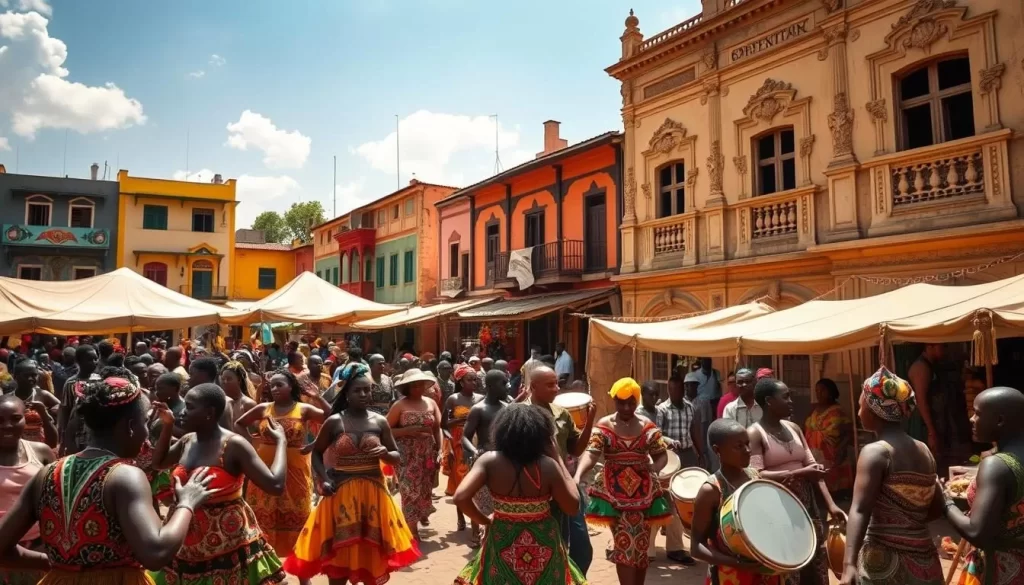
By being informed and prepared, you’ll be able to fully immerse yourself in the vibrant festival culture of Benin, creating memorable experiences.
Conclusion: Making the Most of Benin’s Festival Culture
As you explore Benin’s festival scene, you’ll discover a world of colorful traditions, spiritual practices, and community celebrations. Benin’s festivals, such as the Ouidah Voodoo Festival and the Ganvié Festival, offer a unique glimpse into the country’s rich cultural heritage and its people’s deep connection to their history and traditions.
These festivals are not just entertaining events; they are transformative experiences that can provide new perspectives and deepen your understanding of West African spiritual traditions. Visiting Benin during festival times allows you to witness the vibrant cultural practices firsthand and engage with the local community in meaningful ways. You can also consider combining your Benin festival experience with visits to neighboring Togo, enriching your journey through the region.
To make the most of your Benin festival experience, consider booking a tour that includes visits to historical sites like the Door of No Return in Ouidah, a poignant reminder of the country’s complex history. When planning your trip, ensure you arrange for convenient return flights and suitable accommodation to fully enjoy the festivals without logistical worries.
The above is subject to change.
Check back often to TRAVEL.COM for the latest travel tips and deals.
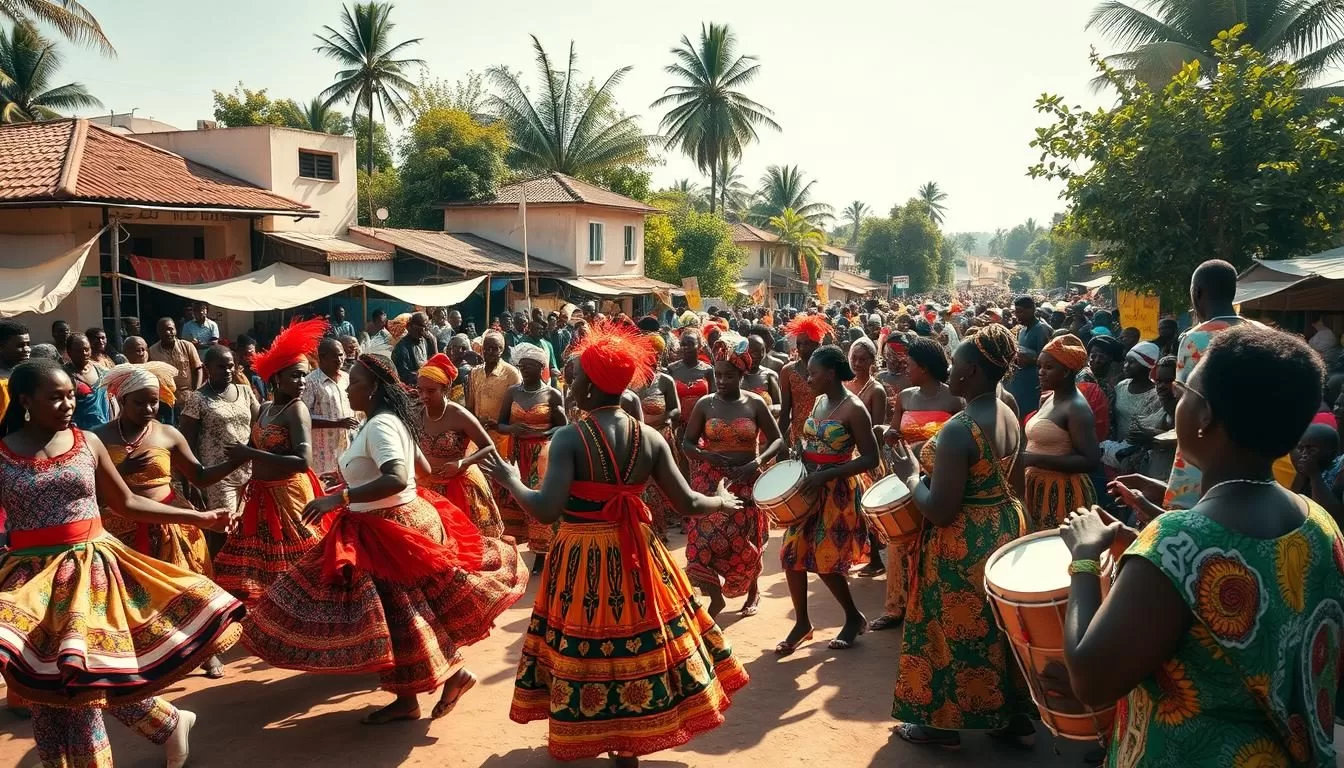
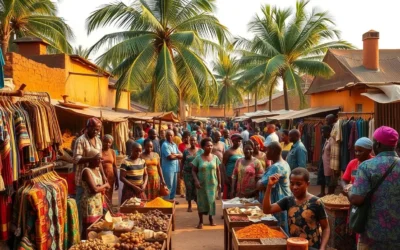
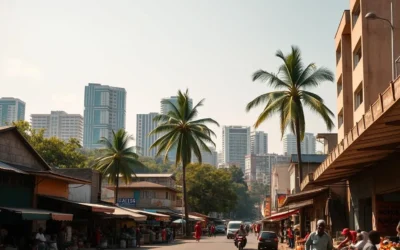
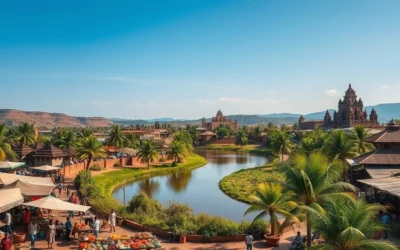

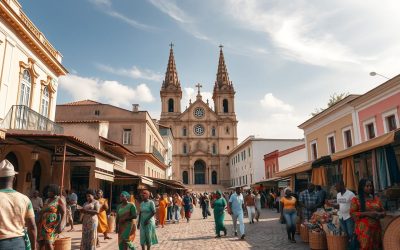
0 Comments